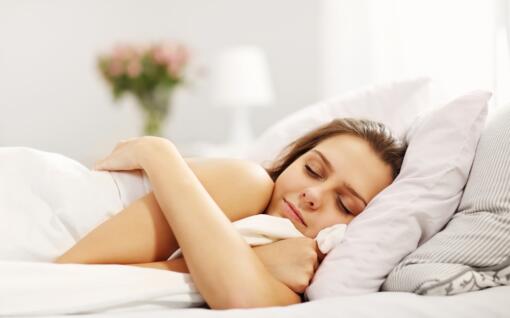Menopause signifies the end of the reproductive years in a woman and generally occurs around the late forties or early fifties. The cease in production of progesterone and estrogen brings about various related problems for them – hot flushes, signs of aging, and erratic and irregular sleep patterns. Deprivation of sleep, in turn, brings about stress, low energy, and irritability.
Issues with Sleep
Contents

Research indicates that over sixty percent of women worry about sleep-related issues that accompany menopause – and they are not wrong. Women actually start experiencing this problem during perimenopause – the beginning period of the transition to menopause. Over eighty percent of menopausal women suffer hot flushes and erratic sleep patterns. Depending on each individual’s overall health and lifestyle, these symptoms could last anywhere between four to five years.
Any of the following can cause sleep problems for women.
- Hormonal Changes: Starting from the onset of perimenopause, there is a gradual decrease in the production of progesterone and estrogen by the ovaries. This can cause problems with falling asleep. However, estrogen levels can also be affected by stress and some environmental factors to create adverse impacts on your sleep.
- Hot Flashes: A sudden surge of adrenaline is responsible for these hot flashes – a condition that produces sweat due to a change of temperature in your body. Adrenaline release wakes up your brain from sleep and it could take time before it recedes, thus keeping you from going back to sleep.
- Social Issues: Life changes as we approach this age – children moving out, retirement if you are working, reduced physical strength – any of these issues combined with the hormonal changes in your body can cause sleep disruptions.
What Can Be Done?

Fortunately, there are many ways to help cope with this phase in a woman’s life. While some involve medication, there are women who manage to sail through this period by altering their lifestyles and other alternative treatments.
Hormone Replacement Therapy
The traditional method to treat hot flushes and menopause-related sleep problems is through HRT (Hormone Replacement Therapy). Consisting of estrogen, Hormone Replacement Therapy can help you sleep, it comes in various forms like vaginal creams, pills, and patches. Depending on the requirement, HRT could be prescribed in isolation or along with progesterone treatment. However, women who are not going through severe symptoms of menopause should not opt for HRT.
Sleep Better with Tips that Induce Sleep in Menstrual Women
– Remember to wear loose and light clothes to bed. You may want to start wearing nightclothes made of breathable and natural fibers like cotton. Man-made and synthetic fibers such as cotton mixed with polyester, rayon, and lycra, are best avoided. Such fibers increase the body heat in menstrual women and cause disturbed and erratic sleep patterns.
– It’s important to check the ventilation of your room to prevent your sleeping area from becoming stuffy or hot. Sleeping in a closed room can add to your woes and you’ll wake up feeling irritated and groggy.
– Soothing light given out by a good quality night bulb is useful for creating the correct sleep environment. Change any bulbs with harsh and direct light and replace them with those with uniform light.
– Deep cleaning your bedroom, at least once each week, will remove all dirt and allergens to create a healthy space for your living.
– Avoid spicy, rich, and heavy food items during dinner time. Such food items lead to improper sleep patterns and induce hot flushes and night sweating.
– Maintaining regular bedtime and sleeping at the right time each night can help in alleviating the concerns of menopausal sleep issues. You may consider using menopause patches just before getting into bed, or as suggested by the health practitioner of your choice. Try not to take long afternoon naps as it may come in the way of your regular sleep cycles.
-Walk daily and exercise regularly, but steer clear of these and other adrenaline-pumping tasks during the late evening. All such activities are best concentrated in the early hours of the morning.
Alternatives to HRT
Many women do not wish to take hormone therapies and look out for other methods to help them pass this difficult time in their lives. One such method, menopause patches, provides relief from night sweats and hot flushes to ease off mood swings. Meditation is recommended to help calm the mind, while physical activity helps in dealing with excess adrenaline. How about getting on top of your sleep-related issues at the earliest? You may want to begin the process with sleep patches and say ‘hello’ to many good nights of sleep.



